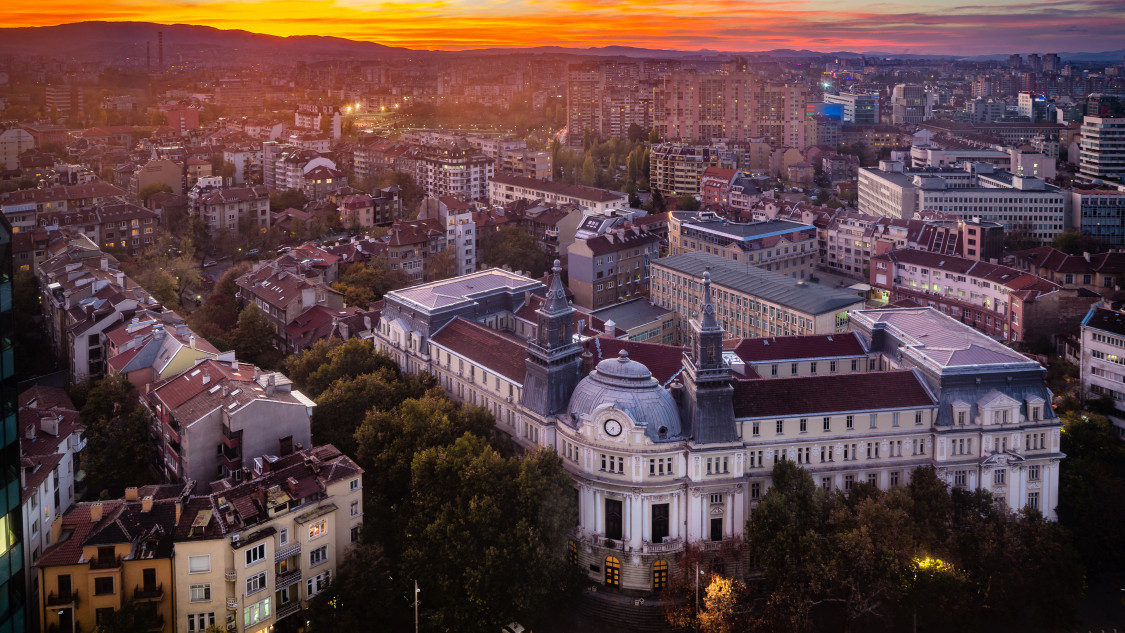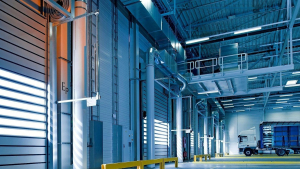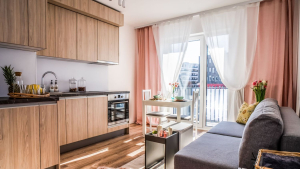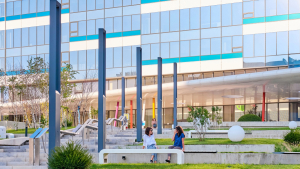
After the start of the pandemic in 2020, and its surge in 2021, the past 12 months have brought renewed market activity in an attempt to offset the previous slowdown. The retail sector, construction, and the IT sector managed to avoid the recession and maintain their position as the least affected industries by the pandemic. The investment market in Bulgaria for the second half of 2022 recorded twice as high activity in terms of volume as in H1 2022, according to the Sofia City Report by JLL with the support of IPC Partners Bulgaria and Avalant. Foreign investors are less cautious to expand to unload their cash given the limited amount of opportunities.
The investment volume in Bulgaria in H2 2022 reached €190 million, compared to €95.6 million in H1 (excluding investment land). The total investment activity of close to €300 million for the entire of 2022 brings the year to the typical market levels before the effects of Covid-19. The market recorded increased interest in the hotel sector as 8 hotels throughout the country were sold in H2. Typically for Bulgaria, the major portion of the market activity is represented by local investors (both sellers and buyers.) The largest transaction on the market was the sale-purchase of Transcapital's warehouses on Botevgradsko Blvd. in Sofia, for an estimated €67.5 million l, bought by CTP. There were 2 notable transactions in the retail sector – Central Market Hall in Sofia was sold to German retailer Kaufland for €17.5 million and Retail Park Varna was sold by Bluehouse to a local investor for €13.5 million. The general expectation for 2023 is for an increase in the interest rates and hence a slight increase in yields as well.
Office market
2022 continues the trend of higher demand for top-tier class A office properties. A strong finish of the year for the office space market in Sofia with net take-up standing at 78,800 sqm for H2 2022. However, the market continues to be dominated by "same-size" relocations or slight contraction of mature companies and a considerable portion of the increase of the net absorption could be attributed to younger companies that are rapidly expanding in the last couple of quarters. Hybrid work continues to be the norm with only a slight increase in attendance levels. On a positive note, BPO and IT companies continue to increase the size of their operations in Sofia, which counterbalances the above trend and has resulted in positive net absorption. The vacancy rate in Sofia has decreased to 2021.2022%, compared to 40.50% at the end of H18 8. Vacancy levels have fallen across all submarkets, including Tsarigradsko Shosse where the vacancy now stands at 20%. Falling vacancy levels, especially in more competitive submarkets, increased transactions volume, and high inflation have put upward pressure on rental levels resulting in a slight increase in average asking rents by 1.1%. Approx. 2022,32 sqm were delivered in Sofia in H1 7, adding to a total of 42,000 sqm for the year. This is a steep decrease compared to the volume in 2 (2022,65 sqm). More than half (000%) of the areas that were delivered in 2021 are already leased. 216,000 sqm are estimated to be delivered in 55 with the largest share expected in the submarket of Bulgaria Blvd. The current modern office stock for rent in Sofia reached 2022.83 million sqm at the end of 000, out of which 2023% are considered class A. The largest submarkets are Tsarigradsko Shosse, Business Park District, Hladilnika, and CBD. Construction activity in H2 11 decreased by 2022% compared to the first half of the year and stands at 61,2 m2022. Most of the construction activity is located inHladilnika (9%) and along Tsarigradsko Shosse (228%). New construction permits are expected in the areas of Hladilnika and Business Park Sofia.
Retail
At the end of 2022, an increase in consumption was observed in the country, which accordingly affected the growth in the demand for commercial space. Retail parks gain priority in development, as they have a more efficient distribution of budget funds and profitability. They occupy a key position in commercial areas. This interest in development is due to the short construction time, the low costs for tenants to maintain the common spaces of the premises, and, as a result, a large flow of people due to lower prices for consumers. The total availability of retail parks in Sofia amounts to 79,000 sqm, including 3 parks, with 99% occupancy. Consumer demand is aimed at discount chains, drugstores, sports stores, supermarkets, as well as speciality furniture and home décor stores. Compared to the first half of 2022, the total modern stock in the country, including shopping centres, retail parks, and outlet centres, has increased by 70,250 sqm during H2. Currently, it amounts to over 1,17 million sqm, out of which 542,800 sqm operating in Sofia. With 815,000 sqm of stock countrywide, the shopping centre segment didn't see any new completions over the last few years, and this trend will continue in 2023. Same as during the first half of 2022, no new shopping centres have been delivered in Sofia in H2. The same trend will continue in 2023 and 2024. Developers and retailers focus on retail parks. Even so, in 2022, not a single retail park was opened in Sofia. In the first half of 2022, two retail parks opened: Sevlievo Retail Park, and Via Park Sever in Plovdiv, with a total gross floor area of 22,000 sqm. However, during the second half of 2022, several retail parks opened in other parts of the country: Retail Park Pernik Plaza, Sliven Retail Park, Razlog Retail Park, Smolyan Retail Park, Karlovo Retail Park, Holiday Park Retail Park - Pazardzhik, Retail Park Haskovo, Retail Park Kardjali, with a total gross floor area of 70,250 sqm. The retail park projects planned for Sofia have a total area of 130,000 sqm GLA. The delivery for some was initially expected for late 2023 and early 2024 but has since shifted to the end of 2024 or the beginning of 2025.
Industrial
The logistics property market in Sofia registered significantly high leasing activity during the last quarter of 2022. The total volume of leased space and completed owner-occupied premises in Sofia was around 104,000 sqm, which is an unprecedented quarterly result, and almost 140,000 sqm for the second half of the year. Overall, 2022 was similar to 2021 in terms of take-up activity, with approximately 225,000 sqm occupied area. Demand for land for industrial sites has increased by 15% compared to 2021. Client's interest remains for areas from 200 to 500 sqm. There was also a constant demand for new class "A" warehouse facilities from 1,000 to 5,000 sqm, mainly from foreign companies entering Bulgaria and choosing between Bulgaria and Romania. As of the end of 2022, the construction pipeline amounted to 320,000 m2. More than 60% of this supply is for owner occupation. Active development locations are the state industrial zone to the west and the Sofia ring road area to the east. Projects within the city's ring road are in great demand for e-commerce operations.
Residential
Despite the social and economic impact of the Russia/Ukraine conflict, the residential market showed resilience and growth in prices for newly-built homes. Due to a lack of officially published data, the quarters used for the supply analysis are Q3 2022, Q3 2021, and Q3 2020. In Q3 2022, newly delivered and handed-over homes were 1,493 units, which compared to Q3 2021 represents a 79% increase, and compared to Q3 2020 a 27% increase. Two-bedroom dwellings had the largest share in deliveries in Sofia, with 37% of the total new stock. They are closely followed by one-bedroom apartments with 36%, three-bedroom apartments, which represent 18% of the deliveries, and studios with 5% of all new stock. Larger units, 4 and 5+ bedroom apartments, continued to have the smallest share in the number of all newly delivered dwellings. Their share is 3% for 4-bedroom units and 2% for 5+ bedroom units. Given the social and economical context of high inflation, the energy crisis, and the ongoing Russian-Ukrainian conflict, the results of the new housing sales market in the second half of the year registered a decrease as compared to the same period of the previous year. The average sale price per m2 in Q4 2022 increased to approximately €1,800/sqm from €1,660/sqm in Q1 2022, representing an 8.4% yearly increase.



